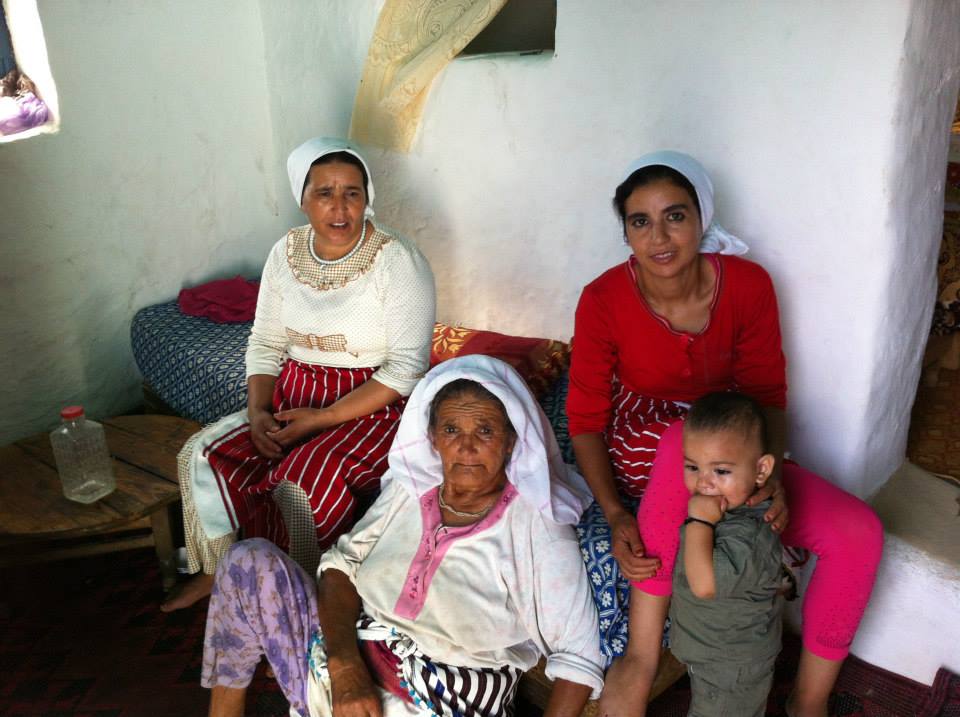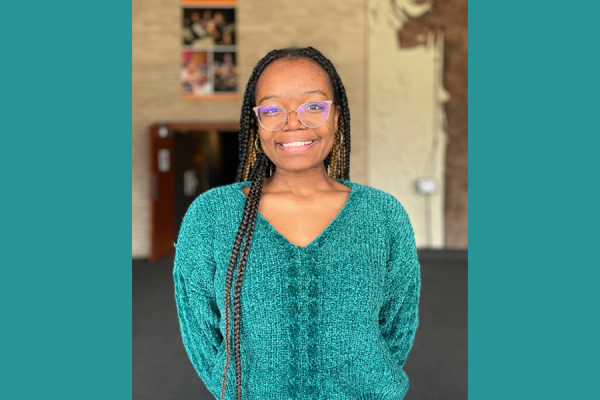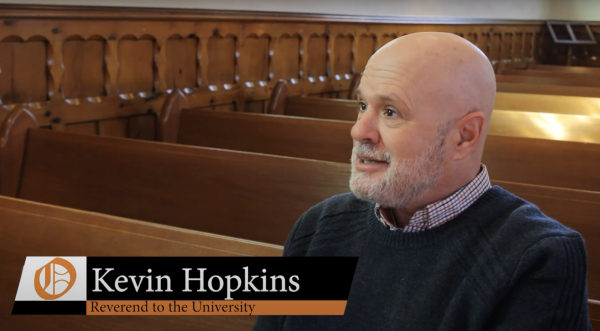Morocco Day 3 and 4: Rabat – Rif Mountains – Chefchaouen – Ceuta, Spain
Day 3: Rabat – Rif Mountains – Chefchaouen Wall on the coast of Asilah, Morocco.
The next morning Bezmah woke early to make us tea and breakfast again. Because it was Monday, she had school along with all her siblings. It was impressive how Bezmah filled the mother role for her younger brother and sisters. They all looked up to her and relied on her for their meals and clothes, but she handled it all easily and still had time to look after her appreciative guests.
It was sad to say goodbye to Bezmah and our host siblings, especially the youngest. It’s amazing how fast you can make connections with people.
So we turned our backs on Rabat to begin the journey to a small village in the Rif Mountains where we would be having lunch with a village family.
First we made a few stops. Since the village family we would be speaking to didn’t know any English, we brought a translator along with us so we could communicate and ask questions. Our translator was one of the Moroccans we had spoken with at the NGO in Rabat, the atheist. His name was Mohammed, but we called him Simo. He would prove to be an interesting companion.
The second stop we made was in a small village to buy food for lunch. The family would be making lunch for us, but it’s always polite to bring something as well. We walked with Felicie through the open air market, which sold everything from avocados to dish towels to baby shower gifts. After buying some fruit and vegetables and items to replenish our snack bag, we stopped at a café for some more tea before continuing to the village.
A stand inside a market on the way through the Rif Mountains.
The road into the village wasn’t easy, and I’m glad I wasn’t the one driving the bus. There was often a very steep drop-off right next to the road, which continued to wind further and further into the mountains. The view was spectacular and terrifying at the same time.
Once we finally arrived at the village, most of us hung back a little shyly, carrying our gifts of food, but Simo strode straight through the front door and plopped down on the couch, having become familiar with this family before from translating for other Morocco exchange groups. Simo’s relaxed attitude helped me feel at ease too.
The house was simple. There was one main room with many couch-beds against the wall where we all sat, another room that must have been the kitchen and then a bathroom. Surprisingly, this bathroom was a lot nicer and cleaner than the one in my host house in Rabat. This family built the house themselves, though, so it seemed they took great pride in keeping it tidy.
The family consisted of a young mother and father with an indiscernible amount of children since there were about two dozen running around outside the house at all times. The mother did have her toddler son with her, though, who took quite a liking to one of the guys in our group. Along with the couple was a neighbor woman who would be joining us for lunch and the discussions as well.
A curious village child indiscreetly peeking through the curtains.
While we were waiting for lunch to be made, I ended up getting into a discussion with Simo about arranged marriages, which are still somewhat common in Morocco. Simo was adamantly against them, saying they all ended badly, although it’s worth noting he didn’t have a positive outlook on marriage in general. Just for the sake of arguing, I asked if he really thought that all arranged marriages were bad. Didn’t some people have some chance at happiness? While he used many colorful profanities that showed just how good a grasp he had on the English language, his short answer was no, they did not.
In addition to simply enjoying a good argument, I found Simo’s aversion to all things traditional fascinating. He smoked and cursed with impunity, seemingly just to announce to everyone that he was different (although he admitted he refrained from doing such things in front of his mother). I’d never met anyone like him.
Our hosts were kind and hospitable. After we had eaten, the father served us tea (I thought this was odd, it seemed serving food and drink was primarily a woman’s job) and we began asking them questions about their life. Felicie told us we’d have this opportunity and that we should therefore try to have some questions ready. I was eager to learn about their lifestyle and consequently had a number of questions I wanted to ask.
I started with asking (through Simo, who luckily cut out the profanities while speaking to the three Moroccans) if they could tell us what a typical day looked like to them. The dad started by telling us about his job working in the field and driving a truck. The women both took care of the children, cooked and cleaned, and did maintenance around the house. This led to an interesting point that if there was a crack in the wall or ceiling of the house, it was the woman’s job to fix it even though the man was the one that built the house. In fact, the father admitted he had no idea how to fix such a crack.
Next, since no one else seemed to have a question ready, I asked about their interest in the politics of Morocco. Being from a rather remote village, I was curious as to how connected they felt to the rest of the country and if they felt they had any control over what happened in it.
The father mostly answered this question, saying he had no interest in politics because he had no capacity to change anything, so why bother? While this was approximately the answer I was expecting, it still made me sad. He said he worked hard every day so that his children could go to school and have a better life than he did.
After a few more questions were asked, I decided we needed a lighthearted one that would also enable us to get to know them on a different level. I thought about the types of questions Americans use to get to know each other. “Ice Breakers” we call them.
I smirked as I thought of one of my favorites and dictated it to Simo, “If you were abandoned on a desert island and could only take one thing with you, what would it be?”
I wasn’t sure if this was really something appropriate to be asking them so I asked Simo to explain that it was a silly question Americans ask sometimes. I know a lot of my friends would say things like their iPod or their guitar but I was eager to see what types of things they valued.
Apparently the father didn’t really get the point though because he responded he would take water. This was such a logical response that we all had to laugh at it. Of course his whole life centered on survival, not luxury, and it just further highlighted the differences in lifestyle between him and most Americans, whose first instincts are usually to take something personal.
When Simo again tried to explain that it was more of something you’d like to take for fun, he still responded he would take a knife. His wife said food and their neighbor said she’d like to take someone with her so she wouldn’t get lonely. Then each of us went around and shared what we would take too so they could have a little insight into our heads. Answers varied from a yacht (seriously) to rope to marijuana (can I say that on a Methodist private school website?).
After we’d asked a few more questions, the two women were curious about American wedding ceremonies so we described those and then they asked us who all wanted to get married (at which point I kept my hand firmly by my side). I thought it was interesting that they’d asked this, wondering what their overall view of Americans must be.
Finally we decided the discussion had gone on long enough and so we took a short hike through the countryside, which offered some beautiful views of the mountain. The dozens of children ran precariously up and down the sides of the hills and would perch just on the edge of a cliffside. It sure made me nervous, but they all seemed comfortable with the impending doom that would befall them should they slip so I went along with it.
View of Chefchaouen, Morocco, from the top of a nearby mountain.
All too soon it was time to move on again to our final destination that day: Chefchaouen. Chefchaouen (which literally means “look at the peaks” in Arabic) is a small touristy town at the foot of the Rif Mountains. We’d be staying in a hostel here for one night before leaving for Spain in the morning.
Before dinner we had a few hours of free time to buy souvenirs at the dozens upon dozens of tourist stands. My least favorite part of this was bartering. Some of the shop owners were pretty mean, and I definitely would have preferred for them to just give me a fair price to start with. How the heck am I supposed to know how much a little teapot is worth? In case you’re wondering I did in fact buy a teapot (for 130 durham which is about 15 U.S. dollars) and some of the Moroccan mint tea that I loved so much. I enjoyed wandering the streets of Chefchaouen (almost all of which are blue, including all the buildings) but I found it was quite easy to get lost (precisely because everything was blue).
Shops in Chefchaouen, Morocco.
For dinner we ate at a small restaurant that had an amazing eggplant dish and crepes drizzled with chocolate for dessert. I unashamedly licked my plate at the end of the meal.
Back at the hostel before Felicie sent us off to bed she asked us all to share something that struck us about Morocco and how we felt we had changed in the last four days.
I said I was struck by how well informed all the Moroccans our age were. All the students we spoke with were able to comment intelligently on current events and political matters.
As for how I had changed, I simply said my time in Morocco gave me more confidence as a traveler. Interacting with the Moroccan people was eye-opening. I had never encountered more hospitable people. Bezmah was a girl no older than me but who was capable of opening up her home to two other complete strangers and me. The village couple hosted 25 strangers for an entire afternoon and didn’t even blink. These acts of kindness and many more culminated in leaving me with a different view of Morocco than I’d come in with. I hope that anyone else who travels to Morocco would have the same experience.
Day 4: Chefchaouen – Ceuta – Algeciras
Our final day in Morocco dawned bright and clear. For those that wanted to partake, Felicie led a hike up the mountain at 7 a.m. The peaceful trek on the well-worn path was the perfect way to reflect on and wrap up the journey. Not to mention we got a great view of Chefchaouen once we’d reached the top of the nearby mountain.
After a final breakfast containing the last cup of my favorite tea, we climbed aboard the bus to leave for Ceuta, which is actually an autonomous city of Spain that lies on the African continent. At the boat station Felicie bought us all a drink, and we spent a last few moments hanging out with our program guides. Again I was struck by how well I felt I’d gotten to know them in so short a time.
I boarded the boat, already missing Morocco. Admittedly though I didn’t even wave goodbye to the country I’d come to love because before the ferry even left the dock I had fallen asleep in my seat. I woke up in Spain and stepped off the boat with the rather cliché feeling that I’d left a part of myself in Morocco. One day, I promised myself, I’d go back and find it again.







